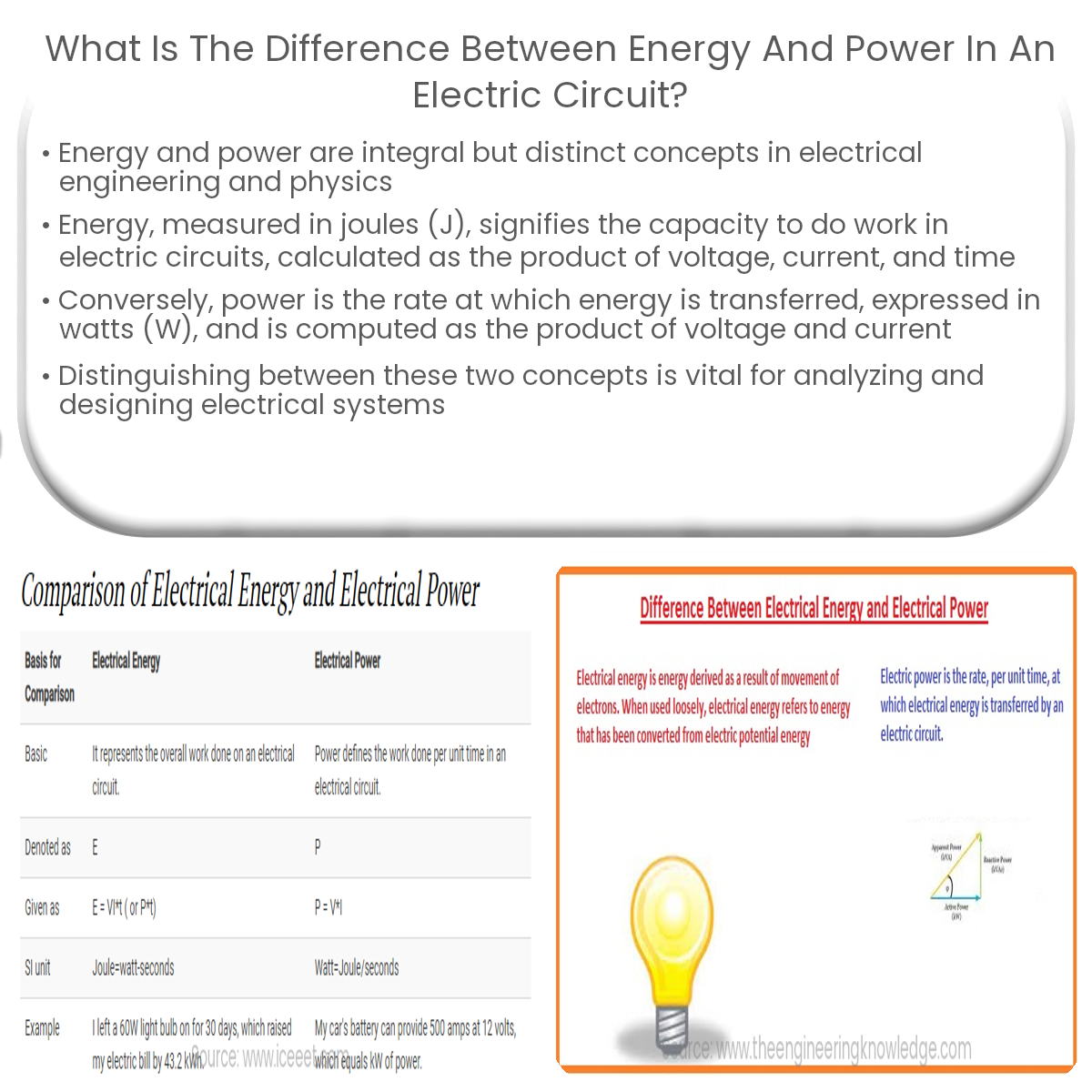Energy is the capacity to do work (measured in joules), while power is the rate of energy transfer (measured in watts) in an electric circuit.
Introduction
Energy and power are fundamental concepts in electrical engineering and physics. While they are related, they have distinct meanings and applications in electric circuits. This article will explore the differences between energy and power in an electric circuit and their significance in understanding and designing electrical systems.
Energy in Electric Circuits
Energy is the capacity to do work or produce a change in a system. In electric circuits, energy is usually expressed in units of joules (J). Electrical energy is the work done to move electric charges through a circuit or the work performed by electric charges moving through the circuit. The total energy transferred in an electric circuit depends on the voltage, current, and time for which the current flows.
In a direct current (DC) circuit, the energy transferred can be calculated using the following equation:
E = V * I * t
Where:
- E is the energy (in joules)
- V is the voltage (in volts)
- I is the current (in amperes)
- t is the time (in seconds)
Power in Electric Circuits
Power is the rate at which energy is transferred or converted in a system. In electric circuits, power is expressed in units of watts (W). Electrical power is the rate at which electrical energy is transferred through a circuit, and it depends on the voltage and current in the circuit.
Power can be calculated using the following equation:
P = V * I
Where:
- P is the power (in watts)
- V is the voltage (in volts)
- I is the current (in amperes)
Differences Between Energy and Power
The main differences between energy and power in an electric circuit include:
- Definition: Energy is the capacity to do work, while power is the rate at which energy is transferred or converted.
- Units: Energy is measured in joules (J), and power is measured in watts (W).
- Time dependency: Energy is dependent on the time for which the current flows, while power is an instantaneous value.
- Calculation: Energy is the product of voltage, current, and time, while power is the product of voltage and current.
Conclusion
Energy and power are related but distinct concepts in electric circuits. Energy represents the capacity to do work and is measured in joules, while power is the rate of energy transfer and is measured in watts. Understanding the differences between energy and power is crucial for analyzing and designing electrical systems and circuits.


